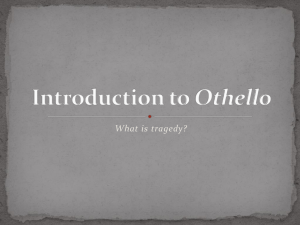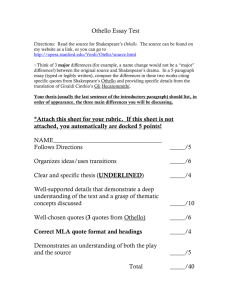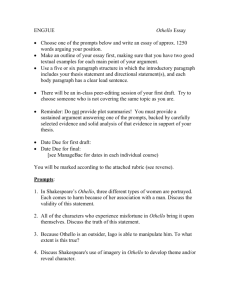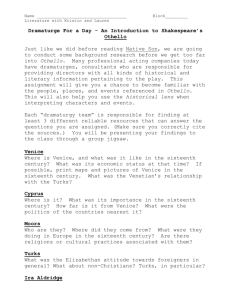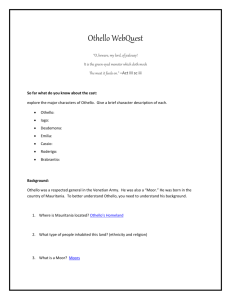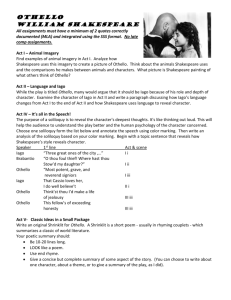Othello Cultural and Social Context
advertisement
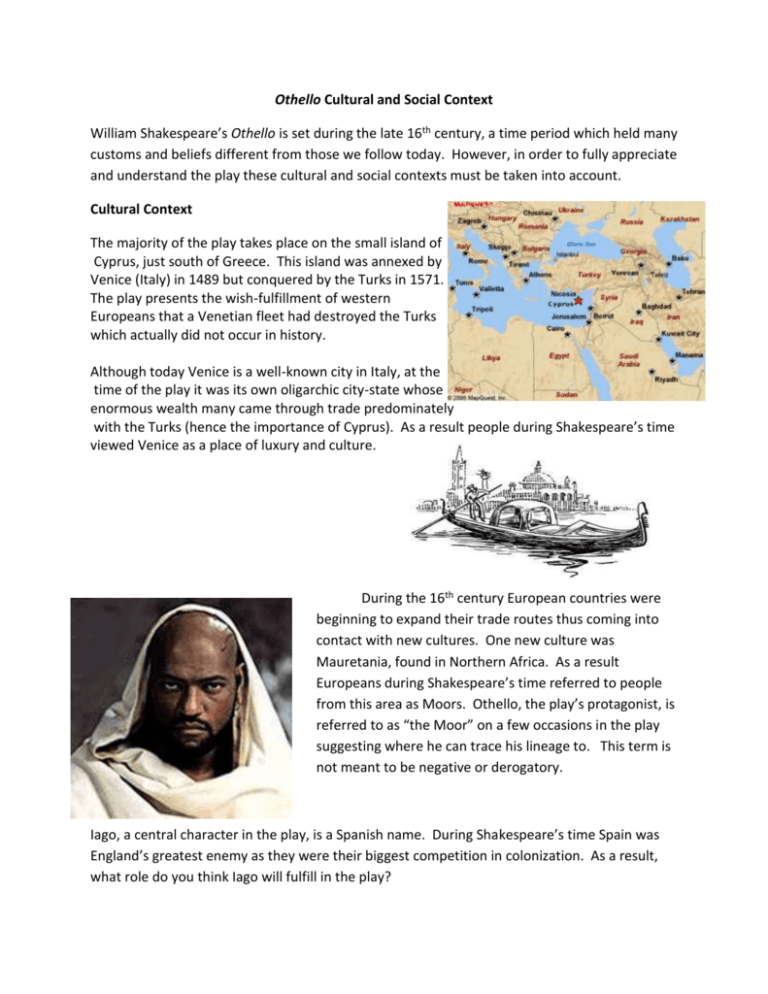
Othello Cultural and Social Context William Shakespeare’s Othello is set during the late 16th century, a time period which held many customs and beliefs different from those we follow today. However, in order to fully appreciate and understand the play these cultural and social contexts must be taken into account. Cultural Context The majority of the play takes place on the small island of Cyprus, just south of Greece. This island was annexed by Venice (Italy) in 1489 but conquered by the Turks in 1571. The play presents the wish-fulfillment of western Europeans that a Venetian fleet had destroyed the Turks which actually did not occur in history. Although today Venice is a well-known city in Italy, at the time of the play it was its own oligarchic city-state whose enormous wealth many came through trade predominately with the Turks (hence the importance of Cyprus). As a result people during Shakespeare’s time viewed Venice as a place of luxury and culture. During the 16th century European countries were beginning to expand their trade routes thus coming into contact with new cultures. One new culture was Mauretania, found in Northern Africa. As a result Europeans during Shakespeare’s time referred to people from this area as Moors. Othello, the play’s protagonist, is referred to as “the Moor” on a few occasions in the play suggesting where he can trace his lineage to. This term is not meant to be negative or derogatory. Iago, a central character in the play, is a Spanish name. During Shakespeare’s time Spain was England’s greatest enemy as they were their biggest competition in colonization. As a result, what role do you think Iago will fulfill in the play? Social Context During the 16th century a person’s job was a reflection of their character and reputation. As a result, being in the army was one of the more prestigious jobs. Depending on the rank one had in the army certain qualities and characteristics were associated with them. General – Othello is the General of the Venetian army. Only those thought to be logical, loyal, brave, trustworthy and courageous were promoted to this position. Lieutenant – Cassio is promoted to this rank by Othello. It’s title literally means “place-holder” which means the lieutenant is second in command to the general and holds this place in the general’s absence. As a result the lieutenant was thought to have the same qualities as the general. Ancient – Also known as the ensign, this man was responsible for carrying the flag on the battlefield. Since the flag identified the locations of the army in battle, it was crucial to allowing the soldiers to find their position. The ancient/ensign had to be extremely courageous and loyal, maintaining his position in the face of death. The ancient/ensign is third in command, under the lieutenant and general. During the 16th century the rules of dating and marriage were much different than today’s practices. England was a patriarchal society. This meant that men made all of the decisions for the family members in their household. Women were expected to be subservient. As a result fathers would often choose who and when their daughters would marry. Suitable partners were selected from men of common or higher social and economic rank. Age was not a factor. Instead, marriages were often treated as a business transaction, as a means for improving a family’s status. Once a woman was married she was expected to obey her husband’s choices and decisions. Thus, when Desdemona weds Othello without her father’s knowledge or permission she breaks several social codes.

